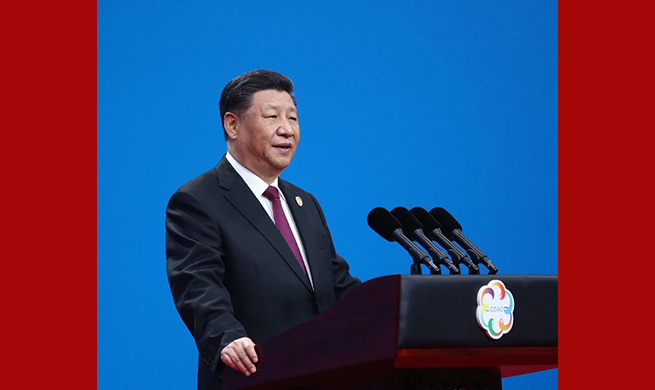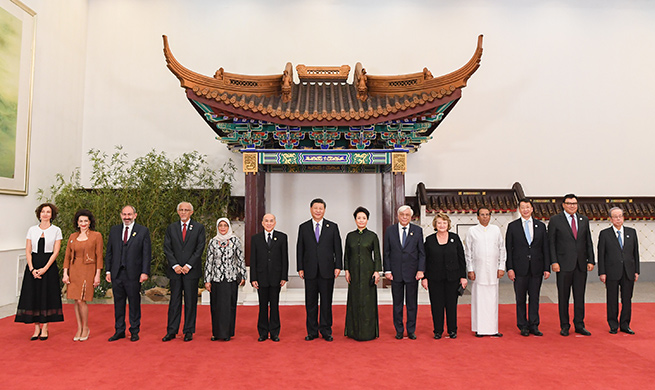BRUSSELS, May 16 (Xinhua) -- European teenagers believe that belonging to the European Union (EU) benefits them directly, and they are keen to learn other languages, explore other cultures, and have friends from other EU countries, showed a study released Wednesday by the European Economic and Social Committee.
The study, "Youngsters and the EU -- Perceptions, Knowledge and Expectations," suggests that European school students are curious to learn more about the EU, including how the institutions work, and see the knowledge as a necessary first step to getting more involved in the EU.
However, they think that the EU does not listen enough to their opinions face to face, said the Committee in presenting the first results of the study, which was carried out by the Committee's Diversity Europe Group.
In general, the EU is perceived as only moderately effective in tackling global challenges such as terrorism or climate change. The desk research and survey findings show action on climate change high among the goals that the students think the EU should be pursuing, said the Committee.
The students are found not to be satisfied with the ways they learn about the EU affairs at school. Many of them recommended improving the related teaching and learning methods, deeming them not sufficiently dynamic or interactive.
"To tackle this, it is essential to build a new European citizenship as a way to engage with people and enrich them. We should develop new educational tools with regard to the EU, for example by developing a European learning platform or introducing a specific subject in schools to explain what the EU institutions do on a daily basis," said Arno Metzler, head of the Diversity Europe Group, in a press release published Wednesday.
"We want to make the European community more active. Civil society organizations and the citizens should communicate the idea and the aims of Europe," added Metzler.
The study, combining desk research, literature review and a survey, aims to find out how students aged between 14 and 18 think of the EU, their knowledge on the EU, their expectations and how open they are to European diversity, said the press release.
To that end, a survey was conducted among students in five EU member states, namely France, Germany, Italy, Sweden and Romania, and in the European Schools in Brussels in the language sections corresponding to those countries.













